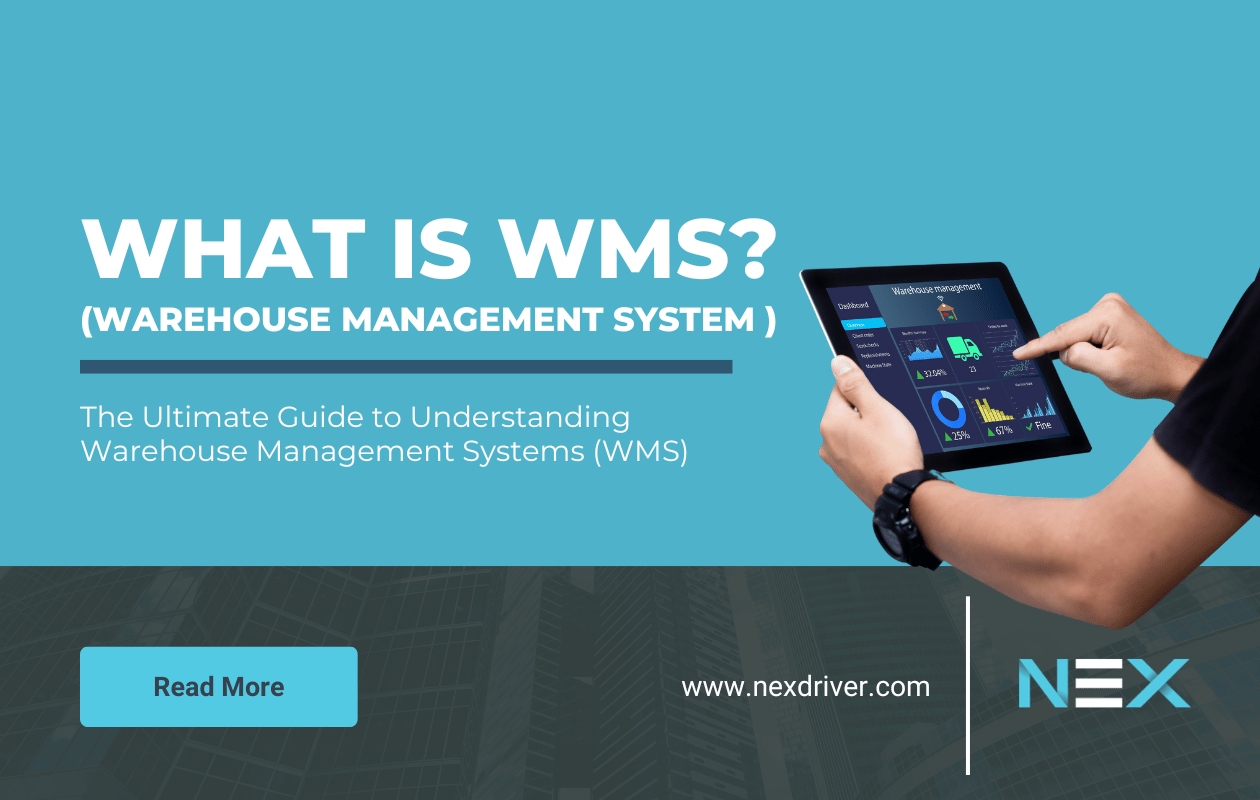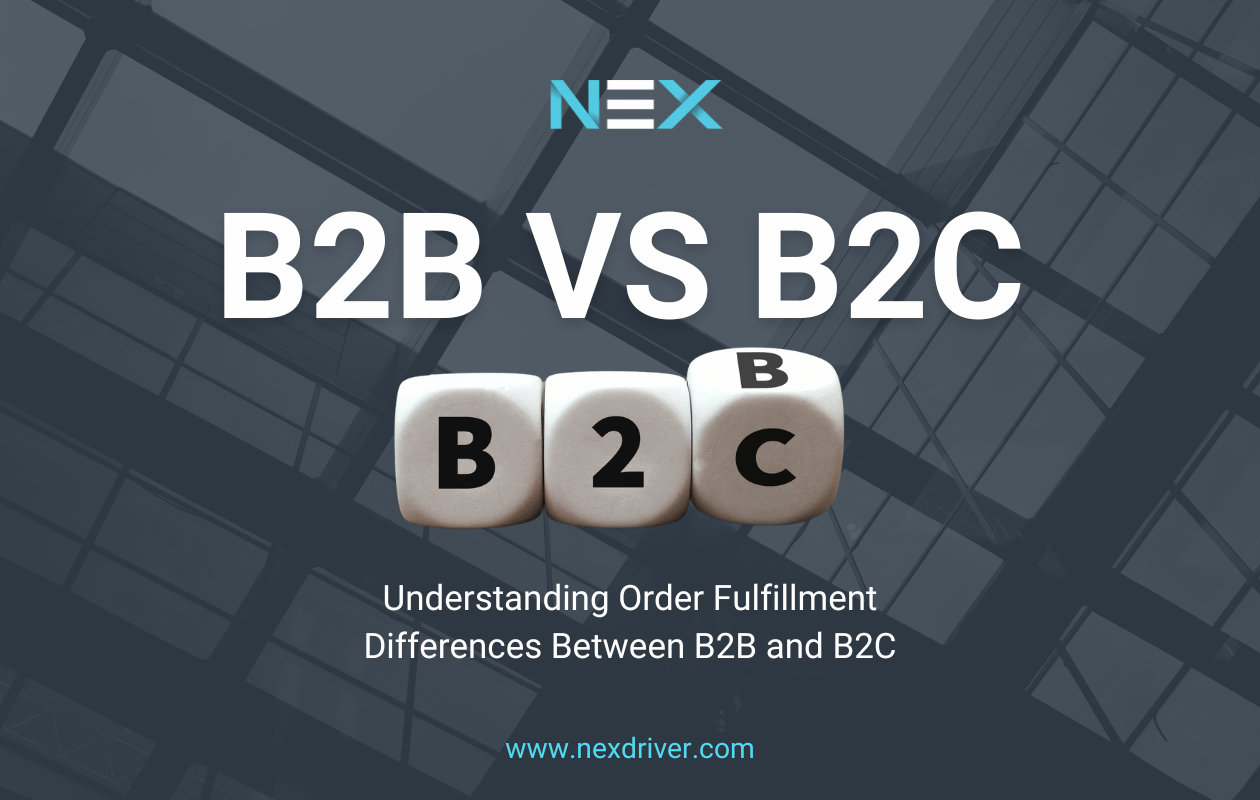Transform B2B Operations with Order Management Software
B2B order management is essential for efficiently handling orders and inventory in a business-to-business ecommerce operation. Choosing the right...
6 min read
NEX Marketing : Oct 1, 2023 10:18:00 AM

In the realm of B2B eCommerce, the management of orders plays a paramount role in ensuring buyer satisfaction. This article aims to explore means of enhancing B2B order management through analytical, detailed, and objective analysis.
The complexities inherent in the B2B order management process, coupled with the heightened expectations of buyers, necessitate the utilization of reliable systems such as spreadsheets, ERP software, B2B operations platforms, and order management software solutions.
By investing in an effective order management system, businesses can avoid inventory shortages, data difficulties, and customer complaints, while also improving overall efficiency and customer satisfaction.
The streamlining of order entry and confirmation processes in B2B order management contributes to increased efficiency and buyer satisfaction. Optimizing order fulfillment and improving order tracking are key objectives in this process.
By ensuring a streamlined order entry process, B2B businesses can reduce manual errors and eliminate redundancies, leading to faster order processing. This can be achieved through the implementation of automated order entry systems that capture accurate and complete order information.
Additionally, efficient order confirmation processes enable businesses to promptly acknowledge and communicate order details to buyers, reducing any potential confusion or delays. This can be achieved through automated confirmation emails or order tracking systems that provide real-time updates on order status.
Optimizing product reservation and warehouse processing involves streamlining the allocation of goods and managing inventory in a way that maximizes efficiency and minimizes errors.
Improving fulfillment processes is crucial for B2B businesses to meet customer demands and ensure satisfaction. Effective product reservation systems enable businesses to allocate goods accurately, reducing the risk of stockouts and improving order fulfillment speed. This optimization requires real-time visibility into inventory levels, allowing businesses to make informed decisions regarding product availability.
Warehouse processing also plays a critical role in optimizing inventory management. Efficient warehouse operations, such as proper organization, labeling, and automated picking systems, can significantly improve order accuracy and reduce processing time.
Managing backordering and dispatch confirmation involves effectively handling delayed orders and providing customers with updates on the status of their shipments. Backordering occurs when a product is temporarily out of stock, and customers are informed that their order will be fulfilled once the item is available.
Dispatch confirmation, on the other hand, involves notifying customers when their order has been shipped. Improving fulfillment processes in these areas is crucial for customer satisfaction and loyalty.
Efficiently managing backorders and dispatch confirmation requires a robust order management system that can accurately track inventory levels, monitor order statuses, and provide real-time updates to customers.
Implementing customer order tracking capabilities allows customers to stay informed about their orders and reduces the likelihood of dissatisfaction due to lack of communication or delayed shipments.
Efficient delivery and returns/exchanges play a crucial role in ensuring customer satisfaction and maintaining a positive business reputation.
In the B2B order management process, timely delivery is essential to meet customer expectations and avoid contract terminations. It is necessary to establish effective logistics and shipping strategies to ensure on-time delivery. This can involve partnering with reliable shipping carriers, implementing real-time tracking systems, and optimizing warehouse operations.
Furthermore, reducing return rates is equally important in maintaining customer satisfaction. B2B businesses can achieve this by improving product quality, providing accurate product information, and offering clear return/exchange policies.
Meeting the high expectations of B2B buyers requires businesses to provide a seamless and personalized customer experience throughout the order fulfillment process. Improving customer experience is crucial for B2B businesses to maintain customer loyalty and gain a competitive edge.
One way to achieve this is by streamlining order fulfillment to ensure efficient and timely delivery. By implementing effective order management systems, businesses can automate processes, enhance efficiency, and reduce errors. This includes integrating order entry, confirmation, product reservation, warehouse processing, dispatch confirmation, and delivery tracking. Real-time updates and accurate inventory management play a vital role in meeting buyer expectations.
Additionally, customizing stages such as delivery and billing can help businesses stand out and meet the high demands of B2B buyers.
Overall, by prioritizing customer experience and streamlining order fulfillment, businesses can create a positive and satisfactory buying journey for B2B buyers.
Overcoming compatibility issues with Electronic Data Interchange (EDI) is crucial for seamless communication and data exchange between B2B businesses and their customers.
EDI is a standardized format for exchanging business documents electronically, such as purchase orders, invoices, and shipping notices. However, different businesses may use different versions or formats of EDI, leading to compatibility issues.
These compatibility issues can result in data integration problems, such as incomplete or inaccurate transmission of information.
To overcome EDI compatibility challenges, businesses can implement solutions such as EDI translation software or outsourcing EDI services to a third-party provider. These solutions help improve data integration by ensuring that EDI messages are correctly translated and transmitted between trading partners.
Implementing a centralized inventory management system across multiple sales channels allows for synchronized and up-to-date inventory data. This enhances real-time inventory updates, improving inventory accuracy and maximizing sales channels.
By centralizing inventory management, businesses can ensure that inventory levels are consistently updated across all sales channels, reducing the risk of overselling or stockouts. This is particularly important when selling on multiple platforms simultaneously, as inventory updates need to be immediate and accurate to meet customer demands.
Additionally, a centralized inventory management system enables businesses to have a holistic view of their inventory, making it easier to analyze sales patterns, identify popular products, and make informed decisions regarding restocking and product promotions.
Overall, implementing a centralized inventory management system is crucial for businesses aiming to improve inventory accuracy and effectively maximize their sales channels.
Cloud-based order management systems offer several benefits for improving scalability and reducing costs in B2B order management processes.
Flexibility:
Cloud-based systems allow businesses to easily scale their order management capabilities up or down as per their needs. This flexibility ensures that businesses can efficiently handle increasing order volumes without the need for significant infrastructure investments.
Accessibility:
Cloud-based systems can be accessed from anywhere with an internet connection, enabling remote teams and external partners to collaborate seamlessly. This accessibility improves the efficiency of order processing and reduces the time and costs associated with manual coordination.
Cost-effectiveness:
Cloud-based order management systems eliminate the need for businesses to invest in expensive on-premises hardware and software. By leveraging the infrastructure and resources of the cloud provider, businesses can significantly reduce their IT costs while maintaining a robust and reliable order management system.
When comparing spreadsheets, ERP software, and B2B operations platforms for order management, businesses must consider their specific needs and requirements in terms of automation, integration, and tailored features.
Spreadsheets offer basic order management functionality but lack automation and real-time updates.
ERP software integrates order management with other business functions, providing a comprehensive solution. It allows businesses to improve automation and streamline processes by centralizing data and enabling real-time updates.
B2B operations platforms are specifically designed to meet the unique needs of B2B businesses. They offer tailored features for order management, such as bulk ordering, complex pricing structures, and integration with suppliers and distributors.
These platforms can improve automation and increase scalability by providing a centralized system for managing orders and integrating with other business processes.
Ultimately, the choice between spreadsheets, ERP software, and B2B operations platforms depends on the specific needs and goals of the business in terms of improving automation and increasing scalability.
Improving customer satisfaction through effective order management and enhancing operational efficiency with streamlined order processes are critical for business success in the B2B sector.
Efficient order management ensures that customer orders are accurately processed and fulfilled in a timely manner, leading to increased customer satisfaction. Customers expect their orders to be handled professionally and delivered on time, and a well-managed order process can meet these expectations.
Streamlined order processes contribute to operational efficiency by reducing errors, minimizing delays, and optimizing resource allocation. By automating manual tasks, such as order entry and inventory management, businesses can save time and reduce costs. This allows organizations to allocate resources more effectively and focus on other aspects of their operations, leading to improved overall efficiency.
Effective order management also enables businesses to track and analyze order data, providing valuable insights for decision-making and strategic planning. By understanding customer preferences, order patterns, and sales trends, businesses can make informed decisions to improve their products, services, and operations, ultimately driving business success.
Automating order processing and improving order tracking are crucial for streamlining the order entry and confirmation processes in B2B businesses.
By implementing advanced order management systems, such as order management software solutions or B2B operations platforms, businesses can automate the order entry and confirmation processes, reducing manual errors and saving time.
These systems provide real-time updates and notifications, ensuring that orders are accurately processed and confirmed in a timely manner, ultimately enhancing operational efficiency and customer satisfaction.
Optimizing inventory control and improving order fulfillment are key strategies for enhancing product reservation and warehouse processing in B2B order management.
Implementing efficient inventory management systems, such as real-time tracking and automated replenishment, can help ensure accurate product reservation and minimize stockouts.
Additionally, streamlining warehouse processes through advanced technologies, such as barcode scanning and automated picking systems, can improve order processing speed and accuracy.
These strategies enhance overall B2B order management efficiency and contribute to buyer satisfaction by reducing fulfillment delays and ensuring product availability.
Backorder challenges in B2B order management refer to the management of orders for products that are temporarily out of stock. Effectively managing backorders involves prioritizing and communicating information about delayed shipments to buyers.
Dispatch confirmation, on the other hand, pertains to notifying buyers when their orders have been shipped.
B2B businesses can effectively manage backordering by implementing inventory management systems that provide real-time visibility of stock levels and automating communication processes for dispatch confirmation. This ensures transparency, reduces delays, and enhances buyer satisfaction.
Efficient delivery and effective handling of returns/exchanges are key considerations in B2B order management.
Streamlining the delivery process ensures timely and accurate fulfillment, reducing customer dissatisfaction. Implementing a structured returns/exchanges handling system minimizes disruptions and enhances customer satisfaction.
Efficient delivery can be achieved through optimizing logistics and utilizing reliable shipping partners.
Handling returns/exchanges requires clear policies, effective communication, and streamlined processes.
To meet the high expectations of B2B buyers and enhance buyer satisfaction in order management processes, businesses must focus on several key areas.
First, they should invest in advanced order management systems that automate processes, leading to faster order fulfillment and improved efficiency.
Additionally, customizing stages like delivery and billing can help businesses stand out and meet higher buyer expectations.
Ensuring real-time updates and accurate inventory levels further enhances the overall customer satisfaction in B2B order management.

B2B order management is essential for efficiently handling orders and inventory in a business-to-business ecommerce operation. Choosing the right...

Warehouse Management Systems (WMS) are essential for optimizing warehouse operations. They provide real-time inventory tracking and streamline...

The understanding of order fulfillment differences between B2B and B2C transactions is a crucial aspect of managing business operations effectively.